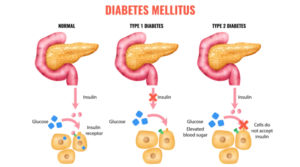
Did you know that the health of your gut can have a profound impact on your overall well-being? The gut, often referred to as the “second brain,” is home to trillions of microorganisms that play a crucial role in digestion, immune function, mental health, and more. In this article, we will explore the fascinating connection between gut health and overall well-being. We will delve into the importance of maintaining a healthy gut, the signs of an imbalanced gut, and provide actionable tips to support your gut health and enhance your overall wellness.
The Gut Microbiome: A Complex Ecosystem
The gut microbiome refers to the collection of microorganisms, including bacteria, viruses, fungi, and other microbes, residing in the gastrointestinal tract. These microorganisms interact with each other and with our body, influencing various aspects of our health. A diverse and balanced gut microbiome is essential for optimal well-being.
Digestive Health and Nutrient Absorption
One of the primary functions of the gut is to break down food and absorb nutrients. A healthy gut ensures efficient digestion and absorption of essential vitamins, minerals, and macronutrients. When the gut is imbalanced, it can lead to digestive issues such as bloating, constipation, or diarrhoea, and hinder nutrient absorption, potentially leading to deficiencies and other health problems.
Gut Health and Immune Function
Did you know that approximately 70% of our immune system resides in the gut? A healthy gut microbiome plays a crucial role in supporting immune function and defending against harmful pathogens. Beneficial gut bacteria help regulate immune responses, reduce inflammation, and enhance the body’s ability to fight off infections and diseases.
The Gut-Brain Axis: Influence on Mental Health
The gut and the brain are intricately connected through a bidirectional communication system known as the gut-brain axis. This connection highlights the impact of gut health on mental well-being. Research has shown that an imbalanced gut microbiome is associated with conditions such as anxiety, depression, and even neurodegenerative diseases. Taking care of your gut health can positively influence your mood, cognition, and overall mental health.
Signs of an Imbalanced Gut
Identifying signs of an imbalanced gut is crucial for addressing gut health issues promptly. Some common signs include persistent digestive problems, food intolerances, frequent infections, chronic fatigue, skin issues, and mood disturbances. If you experience any of these symptoms, it may be an indication that your gut health needs attention.
Tips for Supporting Gut Health
Eat a diverse, plant-based diet: Include a variety of fruits, vegetables, whole grains, and legumes in your diet to promote a diverse gut microbiome.
Consume probiotic-rich foods: Incorporate fermented foods like yogurt, kefir, sauerkraut, and kimchi, which are rich in beneficial bacteria.
Minimize processed foods and sugar: These can disrupt the balance of gut bacteria and contribute to gut inflammation.
Manage stress: Chronic stress can negatively impact gut health. Practice stress-management techniques such as meditation, deep breathing, or engaging in hobbies.
Stay hydrated: Drinking an adequate amount of water helps maintain a healthy gut environment and supports digestion.
Prioritize sleep: Quality sleep is essential for gut health and overall well-being. Aim for 7-8 hours of uninterrupted sleep each night.
Taking care of your gut health is a vital step towards achieving overall well-being. By nourishing your gut microbiome through a healthy diet, stress management, and lifestyle choices, you can enhance digestion, support immune function, and positively influence your mental health. Listen to your gut, pay attention to the signs, and take proactive steps to maintain a healthy gut for a happier and healthier life.



